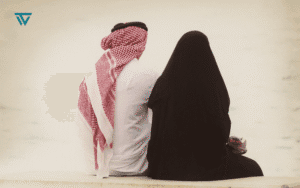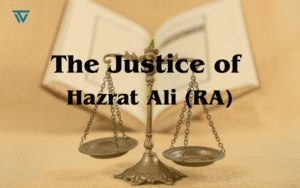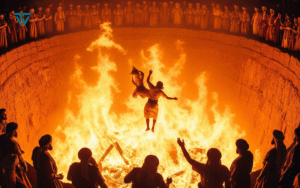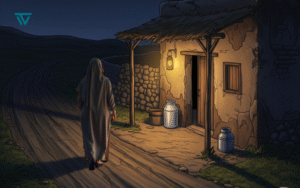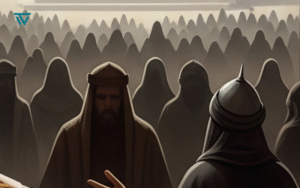The Battle of Badr: A Turning Point in Islamic History
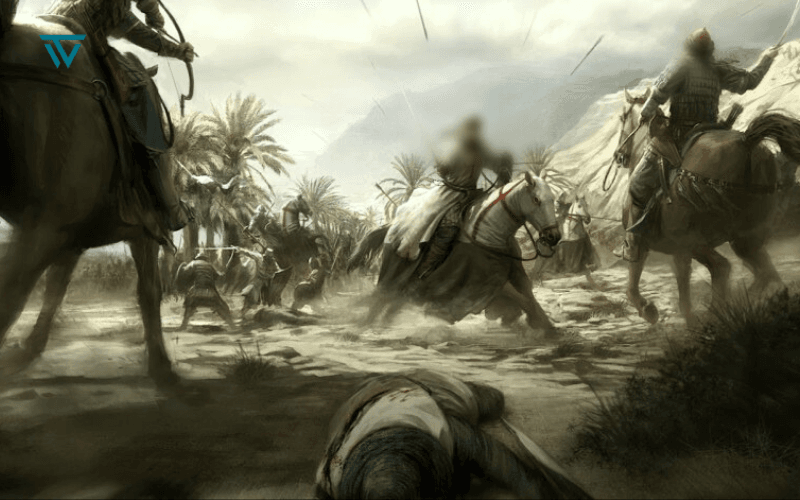
The historic Battle of Badr was not merely a military encounter; rather, it was a fiery trial of faith. Indeed, it served as a criterion between truth and falsehood and marked the dawn of a new horizon in the history of Islam. This clash of unequal forces pitted the Muslims of Medina against the arrogant Quraysh of Mecca on March 13, 624 CE (the 17th of Ramadan, 2 AH). It was the first large-scale battle in islam, and consequently, its victory elevated the Muslims to a new standing. The outcome, furthermore, solidified the leadership of the Prophet Muhammad (ﷺ).
Background: The Road to the Battle of Badr
From the very beginning of Islam’s call, the brutal oppression of the Quraysh in Mecca made the lives of Muslims unbearable. After thirteen long years of enduring inhuman persecution, the Muslims migrated to Medina one by one under God’s command. Yet, they were not safe even in Medina because the Quraysh constantly threatened to attack their new home. It was in this context that Allah, for the first time, revealed a verse, granting Muslims permission to take up arms against their oppressors:
أُذِنَ لِلَّذِينَ يُقَاتَلُونَ بِأَنَّهُمْ ظُلِمُوا ۚ وَإِنَّ اللَّهَ عَلَىٰ نَصْرِهِمْ لَقَدِيرٌ
“Permission [to fight] has been given to those who are being fought, because they were wronged. And indeed, Allah is competent to give them victory.”
(Quran, Surah Al-Hajj: 39)
Following this permission, the Prophet (ﷺ) decided to disrupt the Quraysh’s trade routes to Syria. This strategy aimed to weaken their economic power, which they had largely built upon the wealth and property the Muslims were forced to leave behind in Mecca.
The First Major battle in islam: A Divine Decree
Before Badr, a skirmish occurred at a place called Nakhlah. There, Muslims on patrol engaged a Quraysh caravan, which resulted in one person being killed and two captured. Notably, this incident happened during the sacred month of ‘Rajab,’ a time when Arab tradition forbade warfare. The Quraysh, therefore, seized this opportunity to launch a fierce propaganda campaign against the Muslims, who themselves felt conflicted. It was then that Allah clarified the situation. Specifically, He revealed a verse that strengthened the Muslims’ resolve:
يَسْأَلُونَكَ عَنِ الشَّهْرِ الْحَرَامِ قِتَالٍ فِيهِ ۖ قُلْ قِتَالٌ فِيهِ كَبِيرٌ ۖ وَصَدٌّ عَن سَبِيلِ اللَّهِ وَكُفْرٌ بِهِ وَالْمَسْجِدِ الْحَرَامِ وَإِخْرَاجُ أَهْلِهِ مِنْهُ أَكْبَرُ عِندَ اللَّهِ ۚ وَالْفِتْنَةُ أَكْبَرُ مِنَ الْقَتْلِ
“They ask you about fighting in the sacred month. Say, ‘Fighting therein is a great sin; but to hinder [people] from the path of Allah, to disbelieve in Him, to prevent access to the Sacred Mosque, and to expel its people from it are greater [sins] in the sight of Allah. And oppression (
Fitna) is worse than killing.'”(Quran, Surah Al-Baqarah: 217)
Soon after, news arrived about a massive trade caravan returning to Mecca. It carried assets worth nearly 50,000 gold dinars under the leadership of the Quraysh chief, Abu Sufyan. To intercept it, the Prophet (ﷺ) mobilized a small force of 313 men.
Two Armies Face to Face: When God Bolstered Morale
Upon learning of the Muslim advance, Abu Sufyan sent an urgent message to Mecca for reinforcements. In response, an arrogant and well-equipped army of over 1,000 soldiers, led by Abu Jahl, marched out. The two forces met on the plains that would host the Battle of Badr. The Quraysh army vastly outnumbered the Muslims and possessed superior weapons and supplies; consequently, a battle seemed impossible. However, Allah created a miraculous illusion in the eyes of both armies, which in turn emboldened them for the fight. The Holy Quran captures this moment:
وَإِذْ يُرِيكُمُوهُمْ إِذِ الْتَقَيْتُمْ فِي أَعْيُنِكُمْ قَلِيلًا وَيُقَلِّلُكُمْ فِي أَعْيُنِهِمْ لِيَقْضِيَ اللَّهُ أَمْرًا كَانَ مَفْعُولًا ۗ وَإِلَى اللَّهِ تُرْجَعُ الْأُمُورُ
“And [remember] when He showed them to you, when you met, as few in your eyes, and He made you [appear] as few in their eyes so that Allah might accomplish a matter already destined. And to Allah are [all] matters returned.”
(Quran, Surah Al-Anfal: 44)
The Eve of Battle: A Rain of Mercy and a Promise of Angels
On the night before the battle, a sense of anxiety settled over the Muslim camp. At that moment, Allah sent down a blessed rain. This rain, in turn, settled the dust and firmed the ground for the Muslims; furthermore, it brought a deep sense of peace to their hearts. Meanwhile, the Prophet (ﷺ) fell into prostration in his tent, praying and weeping to Allah for help. He cried out, “O Allah! If this small band of Muslims is destroyed today, there will be no one left on Earth to worship You.”
In response to this heartfelt plea, Allah promised to send an army of angels to aid the believers. The Quran describes this emotional moment:
إِذْ تَسْتَغِيثُونَ رَبَّكُمْ فَاسْتَجَابَ لَكُمْ أَنِّي مُمِدُّكُم بِأَلْفٍ مِّنَ الْمَلَائِكَةِ مُرْدِفِينَ
“[Remember] when you appealed to your Lord for help, and He answered you, ‘I will reinforce you with a thousand from the angels, rank on rank.'”
(Quran, Surah Al-Anfal: 9)
The Battlefield of the Battle of Badr
Drama in the Quraysh Camp As the armies faced each other, some Quraysh leaders felt fear and doubt, especially upon seeing the disciplined and faith-filled faces of the Muslims. A Quraysh noble, Hakim ibn Hizam, approached another chief, Utbah ibn Rabi’ah, and said, “In this battle, we will kill our own brothers and nephews with our own hands. What will we do with such a victory? Let us go back.” Utbah agreed, offering to personally pay the blood money for the man killed at Nakhlah. He then delivered an impassioned speech to the Quraysh, saying, “O people of Quraysh, you will gain nothing from fighting Muhammad. Go back. Do not become known as the killers of your kinsmen.”
However, Abu Jahl, who was consumed by a frenzy for war, fiercely rejected this proposal. Instead, he insulted Utbah, taunting him, “Your son (Abu Hudhayfa) is in the Muslim army, so you’ve grown afraid and speak like a coward to save him!”
This accusation was a deep blow to Utbah’s honor. Enraged, he retorted, “The battlefield will show who is the coward today!” Abu Jahl then approached Amir ibn Hadrami, the brother of the man killed at Nakhlah, and incited him. As a result, following Arab custom, Amir tore his clothes, covered himself in dust, and wailed, “Oh, my brother!” Ultimately, this spectacle ignited the war fever among the Quraysh and extinguished the last hope for peace.
The Historic Duels Amid this tension, the fighting began with single combat, an ancient Arab tradition. Three of the Quraysh’s finest warriors stepped forward: the chief Utbah ibn Rabi’ah, his brother Shaybah, and his son Walid.
Answering their challenge, three lions of Islam emerged from the Muslim ranks: the Prophet’s uncle, Hamza ibn Abd al-Muttalib (ra); the Prophet’s cousin and son-in-law, Ali ibn Abi Talib (ra); and the veteran companion, Ubaydah ibn al-Harith (ra).
In the ensuing combat, for instance, Hamza (ra) swiftly killed Shaybah, and Ali (ra) killed Walid. Ubaydah (RA) and Utbah, on the other hand, locked in a fierce duel, and Utbah severely wounded Ubaydah (RA). Then, Hamza (ra) and Ali (ra) advanced, struck down Utbah, and carried the injured Ubaydah (ra) back to the Muslim camp. A few days later, he attained martyrdom from this very wound.
The General Battle and Divine Aid Because the deaths of their three main champions shattered their morale, the Quraysh launched an all-out assault. At that moment, the Prophet (ﷺ) took a handful of dust and threw it toward the enemy. Incredibly, the dust particles reached the eyes and faces of every pagan soldier, sowing chaos in their ranks. This miracle is immortalized in the Holy Quran:
فَلَمْ تَقْتُلُوهُمْ وَلَٰكِنَّ اللَّهَ قَتَلَهُمْ ۚ وَمَا رَمَيْتَ إِذْ رَمَيْتَ وَلَٰكِنَّ اللَّهَ رَمَىٰ
“And you did not kill them, but it was Allah who killed them. And you did not throw when you threw, but it was Allah who threw.”
(Quran, Surah Al-Anfal: 17)
The Muslim charge was overwhelming. Shouting “Ya Mansur Amit!”, they crashed into the Meccan lines, scattering the once-confident Quraysh army and forcing them to flee. In the heat of the battle, the Meccan leadership was systematically dismantled.
The army’s commander, Abu Jahl, met his end at the hands of Mu’adh ibn Amr and Mu’adh ibn Afra. Bilal, once enslaved and tortured by Umayyah ibn Khalaf, avenged himself by slaying his former master. In one of the day’s most profound moments, Umar ibn al-Khattab confronted his maternal uncle, As ibn Hisham ibn Mughira, and killed him, cementing the principle that allegiance to Islam superseded all other ties.
Fueled by the power of their faith, the Muslims charged the enemy. Thus, with the help of the angels, they achieved an unprecedented victory. 70 of the top Quraysh leaders, including the arch-enemy Abu Jahl, fell in battle, while 14 Muslims embraced the sweet taste of martyrdom. The result of the Battle of Badr was a clear sign from Allah for the outnumbered Muslims, just as He had promised:
وَلَقَدْ نَصَرَكُمُ اللَّهُ بِبَدْرٍ وَأَنتُمْ أَذِلَّةٌ ۖ فَاتَّقُوا اللَّهَ لَعَلَّكُمْ تَشْكُرُونَ
“And Allah had already given you victory at Badr when you were weak. So fear Allah; perhaps you will be grateful.”
(Quran, Surah Aal-Imran: 123)
The Aftermath: The Dawn of a New Era
The victory at Badr therefore established the Muslims as an undeniable force in the Arabian Peninsula. Moreover, it proved that victory depends not on numbers or weapons, but on faith, unity, and the help of Allah. The Prophet’s (ﷺ) humane treatment of the prisoners of war, in particular, set a new moral standard for the world. This included the condition that literate prisoners could earn their freedom by teaching the illiterate.
Therefore, this pivotal battle in islam is not just a historical event; it is an endless wellspring of inspiration and strength for believers until the Day of Judgment.


